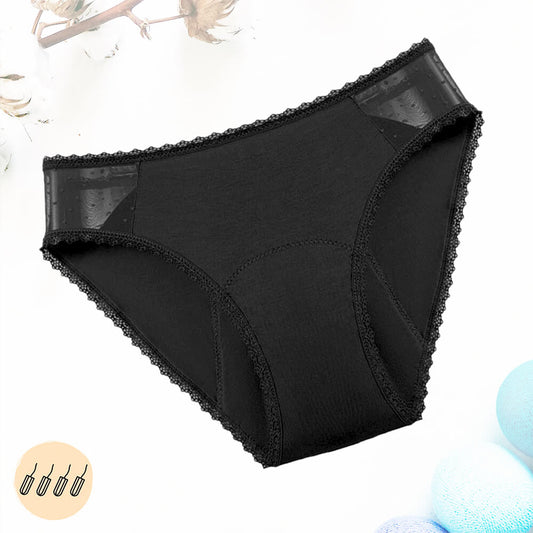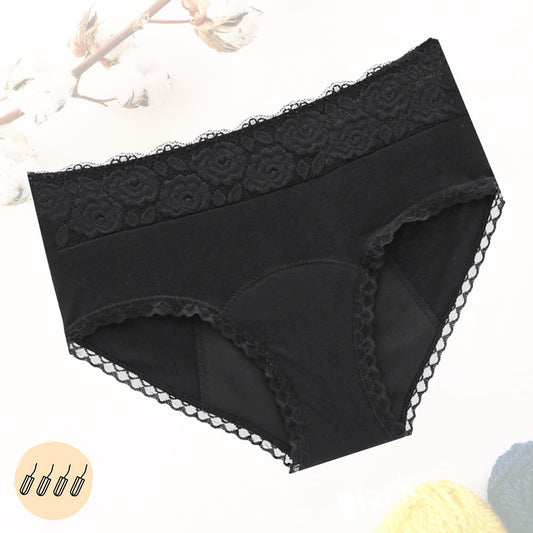
For women, menstruation is a monthly process that sheds the uterine lining and prevents pregnancy. However, for some women, this process may be accompanied by blood clots. Blood clots during menstruation are not uncommon and can range in size from small clots to larger clots that may look like a gelatinous mass. While most blood clots are harmless and dissolve on their own, some can cause problems if they become lodged in the uterus or block blood flow.
What is a blood clot in the rules ?
A blood clot during menstruation is quite common. It occurs when blood cells, proteins, and other materials build up in the uterine cavity and form a clump.
A blood clot during menstruation occurs when the lining of the uterus comes loose (menstrual bleeding) and the blood clots. This can happen for a variety of reasons, including hormonal imbalances, uterine fibroids, or endometriosis.
Typically, a blood clot during menstruation is dried blood that has collected on the walls of the uterus, but it can also be from internal bleeding. A blood clot during menstruation can vary in size and color, from a small lump to a large mass. Colors ranging from dark red to brown.
Blood clots during menstruation can be painful and lead to heavy bleeding and/or abdominal cramps. It is important to note that these clots are not harmful to health and are generally benign.
Clotting during menstruation
Clotting is a natural process that occurs when blood vessels rupture. The red blood cells and blood platelets then go into action to form a clot to close the wound.

Clotting can also occur during menstruation, as the blood vessels located in the uterus also rupture. Blood platelets and red blood cells then come to the rescue to close the blood vessels and stop the bleeding.
In most cases, a blood clot during menstruation is nothing to worry about and resolves on its own. However, if you have large or frequent blood clots, or have other symptoms such as sharp pain or heavy bleeding, it is important to tell your doctor.
What causes blood clots during menstruation?
Blood clots can be caused by a number of factors. One of them is a bigger flow than usual. When your body gets rid of the lining of the uterus more quickly, the blood can clot. Another possible reason is dehydration. If you don't drink enough fluids, your blood may become thicker and clot more easily.
Hormonal changes can also play a role in clotting. If your estrogen levels are low, your blood vessels can constrict and cause clots.
Finally, if you have a history of blood disorders, you are more likely to experience blood clots during your period.
There are several factors that can cause blood clots to form, including:
-
Uterine fibroids: Fibroids are benign tumors that grow in the uterus. They can cause heavy bleeding and clots during menstruation.
-
Uterine polyps: Polyps are growths that can grow in the uterus or on the lining of the uterus. They can cause heavy bleeding and blood clots during menstruation.
-
Hormonal disorders: Hormonal fluctuations can cause irregular, heavy bleeding and clots during menstruation.
-
Blood clotting disorders: Certain genetic or acquired diseases that affect blood clotting can cause heavy bleeding and blood clots during menstruation.
-
Systemic diseases: Certain systemic diseases such as autoimmune diseases can cause heavy bleeding and clots during menstruation.
- Abundant periods: When you have a heavy flow, your body loses more blood than usual, so it has to work harder to clot the blood and stop the bleeding. This can sometimes cause clots to form.
- Dehydration: When you're not properly hydrated, your blood can become thicker, which can lead to clots.
Heavy periods with clots
A blood clot during menstruation is a relatively common condition in women of childbearing age. The heavy bleeding that often accompanies clots is sometimes called “metrorrhagia”.
Heavy bleeding can also occur when the menstrual cycle goes out of order or becomes irregular, which can lead to hormonal disruptions. In some cases, these hormonal changes are caused by medical conditions such as endometriosis or benign tumors of the ovaries.
The heavy periods can also be caused by external factors such as stress or a change in lifestyle. Regular birth control pills and certain medications can also cause heavy bleeding and blood clots.
However, if a blood clot occurs during menstruation with no apparent trigger, it is important to see a doctor to assess the situation and see if further action is needed.
Blood clots during pregnancy
Pregnant women are at greater risk of blood clots forming. This is because increased hormone levels during pregnancy can cause blood to clot more easily.

Blood clots can form in veins and arteries, and can be dangerous if they block blood flow to the placenta or fetus. While most blood clots during pregnancy are not dangerous, some can also cause a pulmonary embolism by traveling to the lungs.
Different symptoms can indicate the presence of a blood clot during pregnancy. These may include swelling in the legs, pain or tenderness in the legs, warmth in the affected area, and redness of the skin.
If you experience any of these symptoms, it is important to contact your doctor immediately. Blood clots can be dangerous for you and your baby, so it's important to get medical help as soon as possible.
How to reduce blood clots during menstruation?
It is important to note that blood clots during menstruation can be caused by a variety of factors, so it is essential to consult a doctor to evaluate the causes of this phenomenon.
To reduce the amount of clots in the blood, here are some possible options:
- Increase your consumption iron-rich foods to prevent a deficiency.
- Take some iron-based dietary supplements if your blood test reveals anemia.
- Consume omega-3 rich foods which have natural anticoagulant properties.
- Hydrate yourself well to maintain good blood flow.
- Consume sweet clover herbal teas and nettle infusion to thin your blood.
- take magnesium to limit coagulation and relieve menstrual cramps.
- Consider a change of birth control to regulate the rules.
It is important to note that these options are not medical treatments and should be used in addition to medical treatment if necessary.
What sanitary protections to use for blood clots during menstruation?

It's important to take steps to prevent leaks and spotting when you have a heavy period with clots. There are different options for sanitary protection that can help you manage these symptoms:
- A Period Panties is a good option for heavy flows as it offers high absorbency and extra protection against leaks.
- A menstrual cup is also effective for heavy periods due to its ability to hold a lot of blood.
- Personalized sanitary napkins to tampons can also be used for very heavy flows, but it is important to change them regularly to avoid the risk of infection.
FAQ
What is a blood clot during menstruation?
A blood clot during menstruation is a kind of shapeless mass made up of blood and tissue that leaks out during the menstrual cycle.
Is it normal for me to see clots during my period?
Yes, it's totally normal. Clots form when there is too much blood flowing out to be absorbed by a tampon or sanitary napkin.
Is a blood clot during menstruation dangerous?
No, a blood clot during menstruation is usually not dangerous. However, if you notice that the clots are larger or more frequent than usual, it is recommended that you seek medical attention.
What should I do if I see blood clots during my period?
Most of the time, you don't have to worry. However, you should tell your doctor if you notice that the clots are larger or more frequent than usual.
What are the symptoms to watch out for?
It is important to watch for any unusual changes in your menstrual flow, such as heavier bleeding or unusual abdominal pain. If you notice these symptoms, seek immediate medical attention.




